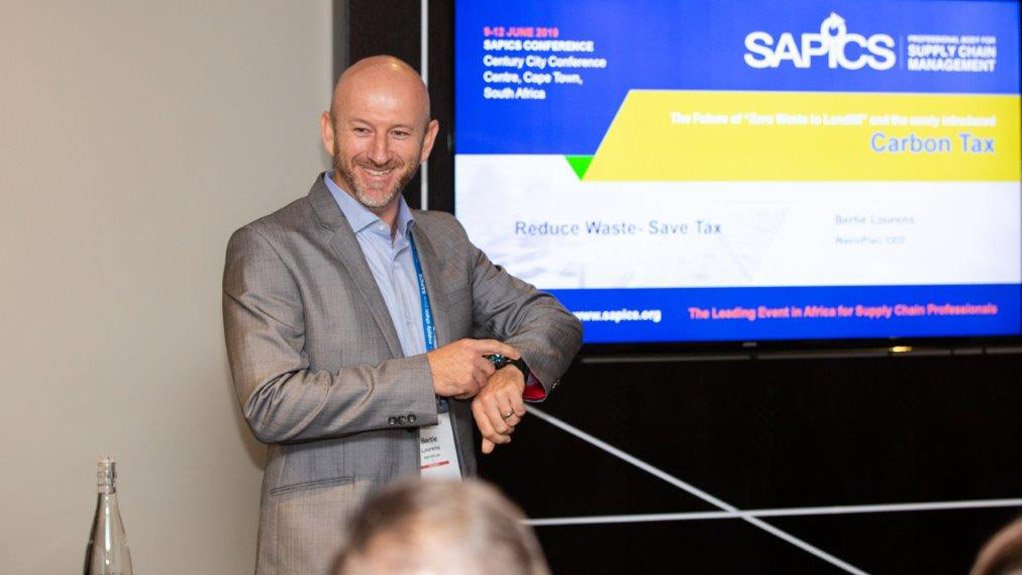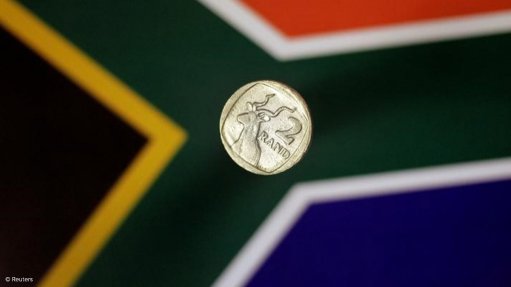Innovative waste management more necessary than ever before – Wasteplan
South Africa has again been ranked as the seventeenth dirtiest energy producer in the world, “out-polluting” the UK and France, says commercial and industrial waste management company Wasteplan CEO Bertie Lourens.
In a media release issued following the 2019 SAPICS Conference, in Cape Town, during which he addressed delegates, he discussed how South Africa was fast approaching a situation where it is running out of landfill space – an inevitable “day full”.
Lourens mentioned that the country’s carbon tax regulations should help change the way companies do business, as it is geared towards reducing carbon emissions by 34% by 2020 and by 42% by 2025.
“The carbon tax is an attempt to mitigate this consumer behaviour and reduce high greenhouse-gas emissions, while stimulating investor appetite for low-carbon alternatives.
“As of June 1, South Africa rolled out the Carbon Tax Bill, which will be implemented in stages and phased in over time to ensure a smooth transition,” Lourens explained.
Carbon Tax Phase 1 will run from implementation up to December 2022. The initial marginal carbon tax rate will be R120/t of carbon dioxide equivalent.
With some thresholds in mind, the effective tax rate is much lower and ranges between R6/t and R48/t. A basic percentage-based threshold of up to 60% applies for the first phase of implementation that is not tax payable, to help businesses transition and adopt low-carbon alternatives.
Additional tax-free allowances include an allowance of up to 10% for process emissions; an additional allowance for trade exposed sectors, to a maximum of 10%; and an additional allowance of up to 5% based on performance against emissions-intensity benchmarks.
“These benchmarks will be developed in due course. There is also a carbon offsets allowance of 5% to 10%, depending on sector, and an additional 5% tax-free allowance for companies participating in Phase 1 of the carbon budgeting system.
“As part of the tax, the carbon offset mechanism also allows companies to participate in a market-based approach to reduce emissions,” said Lourens.
INNER WORKINGS
Carbon emissions reports will be submitted to the Department of Environment, Forestry and Fisheries through legislation known as the National Greenhouse Gas Emission Reporting Regulation (NGER).
Companies that rely on energy generation from their own equipment are obligated to report on all business-related activities for tax purposes.
“Once the carbon tax has been calculated, it will be paid to, and administered by, the National Treasury, which will determine any further tax allowances, based on trade exposure, business performance, etc. At this point, the process could become quite abstruse and bogged down by litigative complexities,” stated Lourens.
He recommended getting experts to help companies navigate the tricky terrain of tax law.
Lourens also noted that there were things businesses could do now to anticipate this burden and reduce their waste to landfill so that less of the business is exposed to heavy carbon taxability, including investing in renewable energy, cool carbon projects and biogas digesters, and reducing waste to landfill.
“Africa is uniquely poised to leapfrog fossil fuel, carbon heavy systems and adopt wind, solar and water energy on sustainable, large-scale levels.
“The tax will take all your activities into account, including the activities related to your waste disposal on site,” Lourens said.
He pointed out that the Western Cape government had implemented legislation that would completely ban organic waste to landfill by 2028, which would force companies to implement solutions for the waste.
“New innovations are making ‘Zero Waste to Landfill’ a reality. It requires an integrative approach with separation at source and effective downstream waste management practises. This approach maximises recyclables recovery, while organic waste is isolated and treated using composting or biogas.
“The remaining waste, consisting mainly of unrecyclable plastic packaging can then be converted, either into energy (such as electricity or oil) using pyrolysis or, into bricks or concrete to build much-needed infrastructure.
“The waste-to-energy landscape in South Africa is still in a vulnerable state, but we believe this will all soon change as our economy is shifting to a low-carbon economy,” Lourens concluded.
Comments
Press Office
Announcements
What's On
Subscribe to improve your user experience...
Option 1 (equivalent of R125 a month):
Receive a weekly copy of Creamer Media's Engineering News & Mining Weekly magazine
(print copy for those in South Africa and e-magazine for those outside of South Africa)
Receive daily email newsletters
Access to full search results
Access archive of magazine back copies
Access to Projects in Progress
Access to ONE Research Report of your choice in PDF format
Option 2 (equivalent of R375 a month):
All benefits from Option 1
PLUS
Access to Creamer Media's Research Channel Africa for ALL Research Reports, in PDF format, on various industrial and mining sectors
including Electricity; Water; Energy Transition; Hydrogen; Roads, Rail and Ports; Coal; Gold; Platinum; Battery Metals; etc.
Already a subscriber?
Forgotten your password?
Receive weekly copy of Creamer Media's Engineering News & Mining Weekly magazine (print copy for those in South Africa and e-magazine for those outside of South Africa)
➕
Recieve daily email newsletters
➕
Access to full search results
➕
Access archive of magazine back copies
➕
Access to Projects in Progress
➕
Access to ONE Research Report of your choice in PDF format
RESEARCH CHANNEL AFRICA
R4500 (equivalent of R375 a month)
SUBSCRIBEAll benefits from Option 1
➕
Access to Creamer Media's Research Channel Africa for ALL Research Reports on various industrial and mining sectors, in PDF format, including on:
Electricity
➕
Water
➕
Energy Transition
➕
Hydrogen
➕
Roads, Rail and Ports
➕
Coal
➕
Gold
➕
Platinum
➕
Battery Metals
➕
etc.
Receive all benefits from Option 1 or Option 2 delivered to numerous people at your company
➕
Multiple User names and Passwords for simultaneous log-ins
➕
Intranet integration access to all in your organisation





















